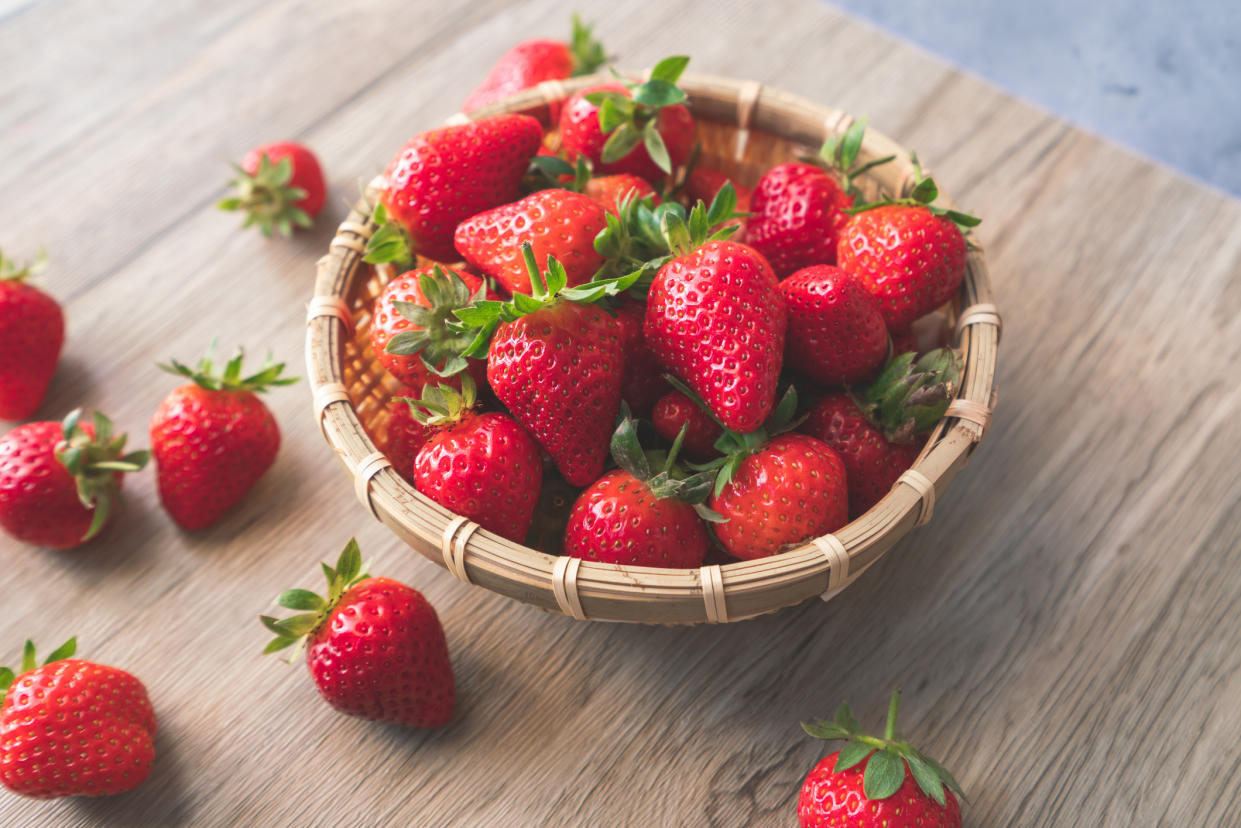Nutritionist reveals 10 ways to avoid 'forever chemicals'

You might not be able to see them, but so-called 'forever chemicals' are everywhere.
Simply making a meal in the kitchen can be a minefield with invisible, toxic chemicals lurking in every part of the food prep process.
Per- and polyfluoroalkyl substances (PFAS) pesticides PFAS, otherwise known as 'forever chemicals', can be found in nonstick cookware, bisphenol in plastic containers, lead in ceramics, arsenic in pans, formaldehyde in cutting boards and many other kitchen must-haves.
But they are also found in the food we eat and the water we drink, with recent research finding the toxins to be widespread across British fruit and vegetable produce.
Pesticide Action Network (PAN) UK recently analysed the government’s latest residue testing programme results and found that there are at least 10 different PFAS pesticides found across spices, fruits, and vegetables.
While it has long been known that PFAS enter the body by being inhaled or ingested, other research, published in the journal Environment International, also recently shed new light on how forever chemicals make their way into the bloodstream through the skin.

Health risks of 'forever chemicals'?
PFAS are a large group of human-made chemicals that have been used in industry and consumer products worldwide since the 1940s.
"These chemicals are commonly found in non-stick cookware, water-repellent clothing, stain-resistant fabrics and carpets, some cosmetics, firefighting foams, and products that resist grease, water, and oil," explains Bex Prade, clinical nutritionist and functional medicine practitioner.
"PFAS have also infiltrated our food and water system, being detected in various food items and certain contaminated crops."
Due to their persistent nature, PFAS do not break down in the environment or human body, leading to accumulation over time and earning them the nickname 'forever chemicals' from scientists.
"This persistence raises concerns about potential health effects, including links to cancer, hormone disruption, immune system impacts, and developmental issues in children," Prade adds.
In the UK, studies indicate that nearly everyone has some level of PFAS in their blood, but given the potential health implications, it's not surprising, therefore, that many of us are seeking to try to side-step 'forever chemicals'.

How to avoid PFAS
While avoiding PFAS altogether can be challenging due to their widespread use in various products and their persistent nature, Prade says there are several measures you can take to reduce your exposure to these chemicals.
Choose PFAs-free products: Look for labels indicating that products are PFAS-free. "This includes non-stick cookware, water-repellent clothing, stain-resistant fabrics, and certain cosmetics," Prade explains.
Check food packaging: Prade suggests avoiding food packaged in materials treated with PFAS, such as some microwave popcorn bags, fast food wrappers, and take-out containers.
Use safe cookware: Avoid non-stick cookware that contain PFAS. "Instead, use alternatives like stainless steel, cast iron, ceramic or glass," Prade suggests. "It's essential to check product labels and manufacturer information to ensure that the specific brand and type of cookware you are purchasing does not contain any harmful chemicals."
Always filter your water: Use a water filter certified to remove PFAS. "This helps to reduce PFAS exposure through drinking and cooking water," Prade explains. "Activated carbon filters and reverse osmosis systems are effective options."
Be selective with seafood: Some fish and shellfish can accumulate high levels of PFAS. "While PFAS contamination can vary by region and source, certain types of seafood tend to have lower levels of PFAS," Prade says. "Generally, smaller, wild-caught fish and seafood from less contaminated waters are better options. Choose wild-caught Alaskan salmon, sardines, herring, anchovies, shellfish and pacific cod."

Choose fruit and vegetables wisely: Choose organic where possible especially when selecting soft fruit like strawberries, grapes, tomatoes and cherries and vegetables like spinach. "Check out https://www.pan-uk.org for their full list of UK produce containing PFAS," Prade adds.
Eat Seasonally: Prade says out-of-season fruit will be particularly high in PFAS to keep food fresh for storage and transportation, so eating seasonally can be an effective way of reducing your exposure.
Reduce consumption of certain foods: Be aware of foods that may have higher levels of PFAS, such as fast food. "Choose fresh, whole foods when possible and reduce consumption of highly processed foods," Prade suggests.
Avoid stain-resistant treatments: Prade recommends trying not apply stain-resistant treatments to furniture, carpets, and textiles, as these often contain PFAS.
Check product labels: Be cautious with products labelled as water-repellent or grease-resistant. "These often contain PFAS," Prade adds.
Health: Read more
How badly fizzy drinks can damage your gut health (Yahoo Life UK, 3-min read)
Gut health: Foods to eat and avoid to improve your wellbeing (Yahoo Life UK, 8-min read)
What your poo can tell you about your gut health (Yahoo Life UK, 6-min read)


